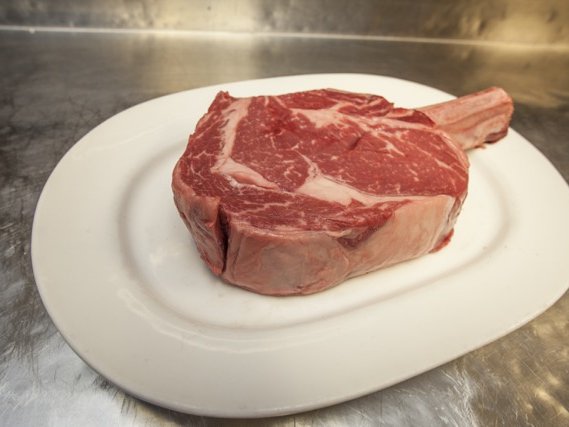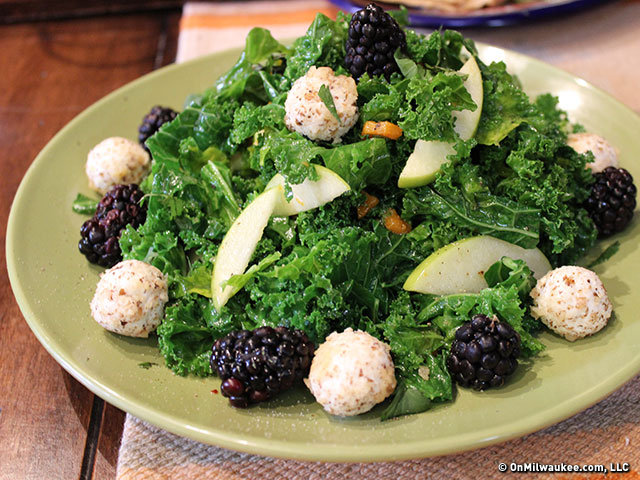New Year's celebrations are behind us, leaving only the resolutions to eat better and get fit. Don't worry, we're here to help. This week – Healthy Living Week, brought to you by The Milwaukee Y – we will focus on articles and information about exercise, eating right and staying healthy in a variety of ways.
There is a massive amount of nutrition misinformation to be found on the internet. And Americans believe a lot of what is touted, especially when it comes to fat.
Despite the fact that people have eaten meat for centuries (and continue to do so), science has always seemed to have it out for saturated fat.
Think about it. From the early 1900s all the way through the late 1980s, butter and animal fat substitutes like Crisco and margarine were all the rage. For a time, many even considered them healthful. And why not? After all, they’re created from vegetables, and we all want to avoid saturated fats, right?
Of course we do. After all, the cornerstone of modern nutrition policy is built on the idea that a low-fat high-carbohydrate diet is key to preventing heart disease.
In the meantime, the public has been snowed by rhetoric. Makers of margarine were very effective in constructing a nutritional myth around their products, which often contained ingredients now recognized as trans fats (and shown to be harmful). The trend was encouraged by the "vilification" of saturated fats, a movement that dates back to the 1950s when research suggested a link between high dietary saturated fat intake and death from heart disease.
So, let’s take it as a given that trans fats are bad for us. And since many varieties of margarine still contain partially hydrogenated oils (read: trans fat), it's probably good to avoid those. Note that stick margarine generally contains more trans fats than its tub counterpart; but the only way to tell what you're getting is to read the ingredients.
But what about the vegetable oil spreads? Well, even those can be controversial, particularly since many contain canola oil, a highly processed oil that is extracted with solvents and deodorized (sounds delicious, no?).
So, what kinds of fat should we eat?
An ever growing body of research suggests that a Mediterranean diet, rich in vegetables, fruit, whole grains and heart-healthy fats like nuts and olive oil may be best for cardiovascular health. In fact, there don't seem to be many nay-sayers suggesting that more whole foods are bad for anyone.
And, despite messages to cut back on eating fat, the medical profession on the whole agrees (I think) that fats are an important part of a healthy diet. After all, they provide essential fatty acids (think omega-3, for one), keeping our skin supple (again, omega-3 and omega-6), helping to deliver fat-soluble vitamins (vitamins A, D, E and K) and providing a great source for energizing fuel.
But, there's also a muddying of the water when it comes to the demonization of saturated fat. In fact, there’s emerging evidence which suggests not all saturated fat should be lumped into the same pile. One component of saturated fat in particular, known as stearic acid, may actually protect the heart against disease. Stearic acid is found in foods like beef, pork, olive oil, cheese, chocolate and milk.
But, I also think that – at its core – the fat debate isn't entirely about fat.
A new Harvard study from Journal of the American College of Cardiology highlights an important thing to consider regarding fat consumption. It followed nearly 85,000 women and almost 43,000 men and along the way, seems to indicate that your diet – on the whole – is likely more important than whether or not you eat saturated fat.
In an effort to eliminate "bad fats" from their diets, many people have taken a turn for the worse by subbing out simple carbohydrates for fat. Just think about all the snack packs – including highly processed low-fat cookies, pretzels and other simple carbs – that have invaded our grocery spaces. No, you’re not eating bacon for lunch, but you might be eating a sandwich on white bread with a 100-calorie snack pack of cookies.
The idea is this: if you substitute processed carbohydrates for saturated fat in your diet (trading say, white bread or a bagel for bacon) you’re not really doing yourself any favors. On the other hand, if you’re balancing out saturated fats with other unsaturated fats – like those found in olive oil and nuts – and/or whole grains, heart disease risk appears to be lower.
So, where does that leave us?
Seems to me that Michael Pollan is right on the money when he says: "Eat food. Not too much. Mostly plants." In other words: everything in moderation. Including fat.
As a passionate champion of the local dining scene, Lori has reimagined the restaurant critic's role into that of a trusted dining concierge, guiding food lovers to delightful culinary discoveries and memorable experiences.
Lori is an avid cook whose accrual of condiments and spices is rivaled only by her cookbook collection. Her passion for the culinary industry was birthed while balancing A&W root beer mugs as a teenage carhop, fed by insatiable curiosity and fueled by the people whose stories entwine with every dish. Lori is the author of two books: the "Wisconsin Field to Fork" cookbook and "Milwaukee Food". Her work has garnered journalism awards from entities including the Milwaukee Press Club. In 2024, Lori was honored with a "Top 20 Women in Hospitality to Watch" award by the Wisconsin Restaurant Association.
When she’s not eating, photographing food, writing or planning for TV and radio spots, you’ll find Lori seeking out adventures with her husband Paul, traveling, cooking, reading, learning, snuggling with her cats and looking for ways to make a difference.







